第52章 First Years as a Woman's Editor (3)
By this time the editor had come to see that the power of a magazine might lie more securely behind the printed page than in it.He had begun to accustom his readers to writing to his editors upon all conceivable problems.
This he decided to encourage.He employed an expert in each line of feminine endeavor, upon the distinct understanding that the most scrupulous attention should be given to her correspondence: that every letter, no matter how inconsequential, should be answered quickly, fully, and courteously, with the questioner always encouraged to come again if any problem of whatever nature came to her.He told his editors that ignorance on any question was a misfortune, not a crime; and he wished their correspondence treated in the most courteous and helpful spirit.
Step by step, the editor built up this service behind the magazine until he had a staff of thirty-five editors on the monthly pay-roll; in each issue, he proclaimed the willingness of these editors to answer immediately any questions by mail, he encouraged and cajoled his readers to form the habit of looking upon his magazine as a great clearing-house of information.Before long, the letters streamed in by the tens of thousands during a year.The editor still encouraged, and the total ran into the hundreds of thousands, until during the last year, before the service was finally stopped by the Great War of 1917-18, the yearly correspondence totalled nearly a million letters.
The work of some of these editors never reached the printed page, and yet was vastly more important than any published matter could possibly be.Out of the work of Ruth Ashmore, for instance, there grew a class of cases of the most confidential nature.These cases, distributed all over the country, called for special investigation and personal contact.Bok selected Mrs.Lyman Abbott for this piece of delicate work, and, through the wide acquaintance of her husband, she was enabled to reach, personally, every case in every locality, and bring personal help to bear on it.These cases mounted into the hundreds, and the good accomplished through this quiet channel cannot be overestimated.
The lack of opportunity for an education in Bok's own life led him to cast about for some plan whereby an education might be obtained without expense by any one who desired.He finally hit upon the simple plan of substituting free scholarships for the premiums then so frequently offered by periodicals for subscriptions secured.Free musical education at the leading conservatories was first offered to any girl who would secure a certain number of subscriptions to The Ladies' Home Journal, the complete offer being a year's free tuition, with free room, free board, free piano in her own room, and all travelling expenses paid.The plan was an immediate success: the solicitation of a subscription by a girl desirous of educating herself made an irresistible appeal.
This plan was soon extended, so as to include all the girls' colleges, and finally all the men's colleges, so that a free education might be possible at any educational institution.So comprehensive it became that to the close of 1919, one thousand four hundred and fifty-five free scholarships had been awarded.The plan has now been in operation long enough to have produced some of the leading singers and instrumental artists of the day, whose names are familiar to all, as well as instructors in colleges and scores of teachers; and to have sent several score of men into conspicuous positions in the business and professional world.
Edward Bok has always felt that but for his own inability to secure an education, and his consequent desire for self-improvement, the realization of the need in others might not have been so strongly felt by him, and that his plan whereby thousands of others were benefited might never have been realized.
The editor's correspondence was revealing, among other deficiencies, the wide-spread unpreparedness of the average American girl for motherhood, and her desperate ignorance when a new life was given her.On the theory that with the realization of a vital need there is always the person to meet it, Bok consulted the authorities of the Babies' Hospital of New York, and found Doctor Emmet Holt's house physician, Doctor Emelyn L.
Coolidge.To the authorities in the world of babies, Bok's discovery was, of course, a known and serious fact.
Doctor Coolidge proposed that the magazine create a department of questions and answers devoted to the problems of young mothers.This was done, and from the publication of the first issue the questions began to come in.Within five years the department had grown to such proportions that Doctor Coolidge proposed a plan whereby mothers might be instructed, by mail, in the rearing of babies--in their general care, their feeding, and the complete hygiene of the nursery.